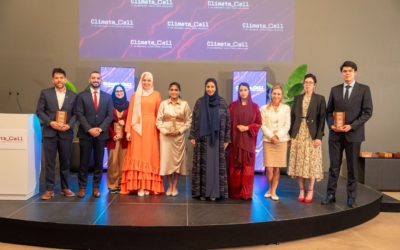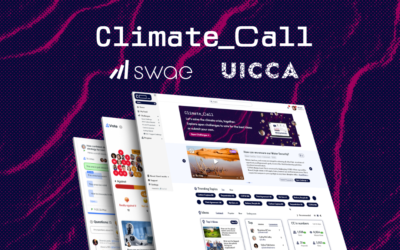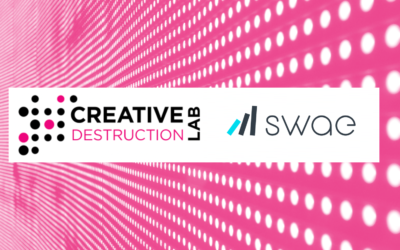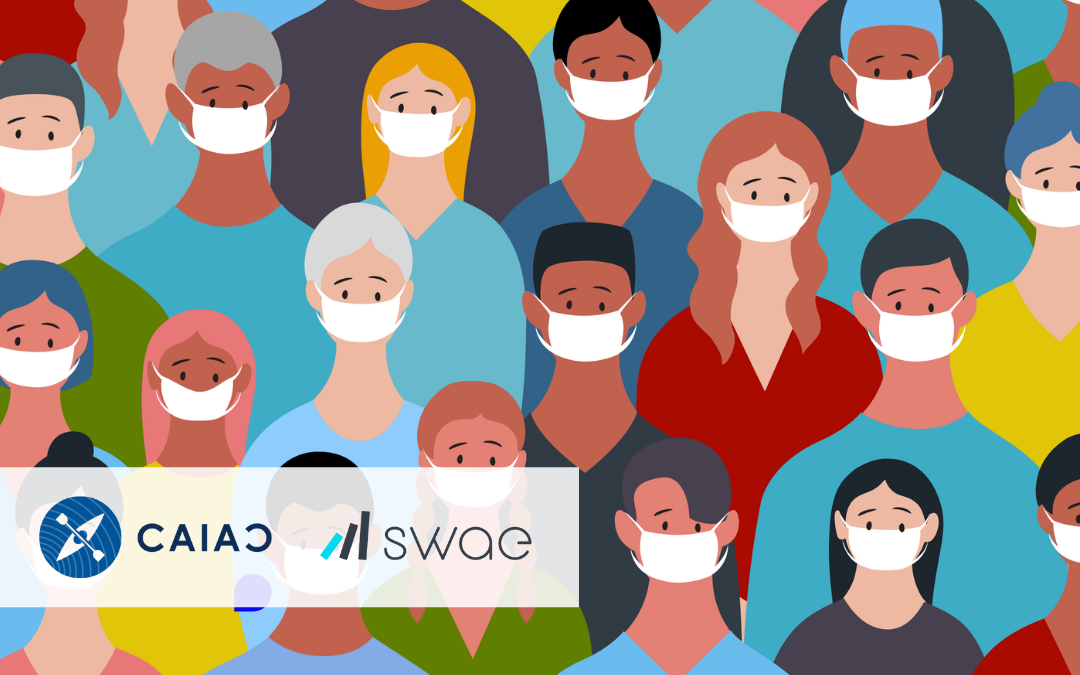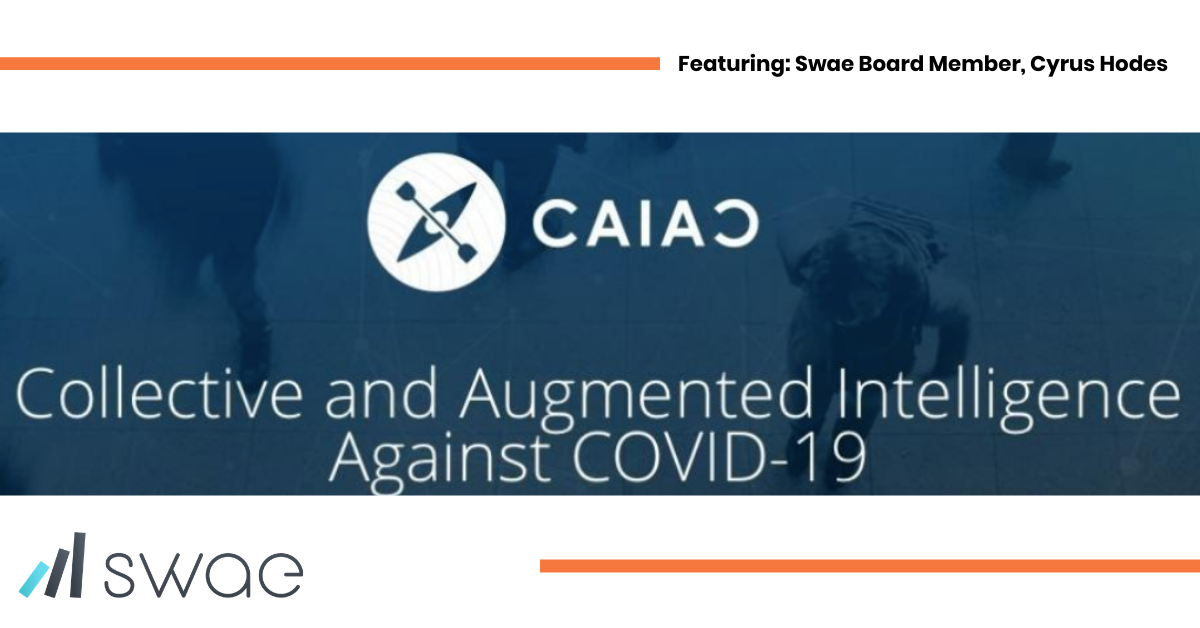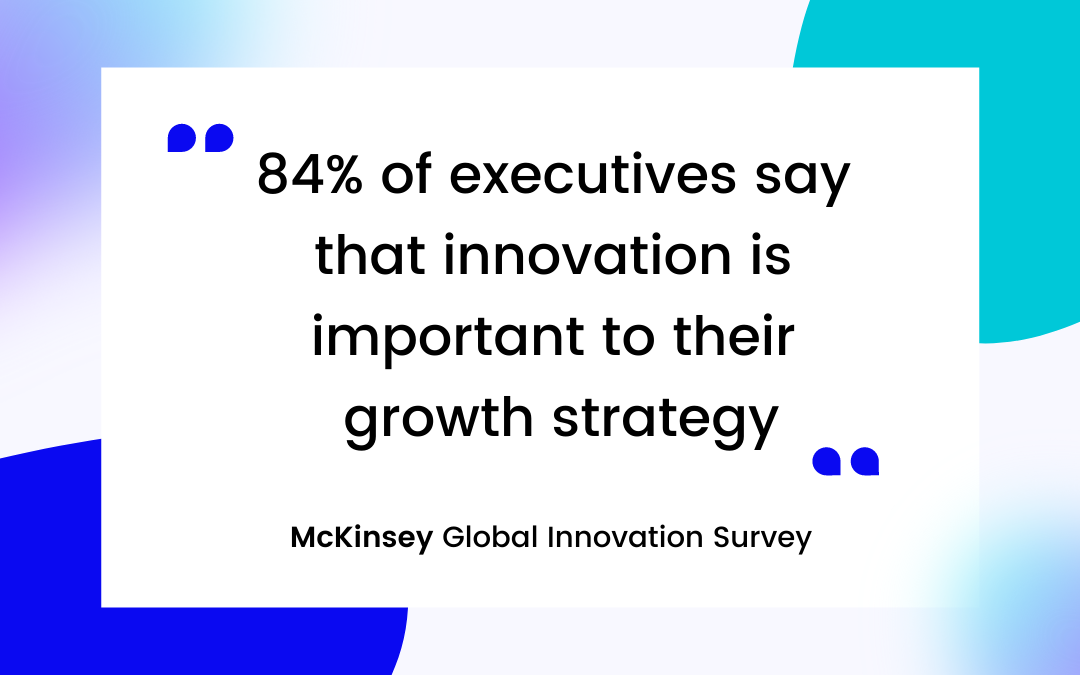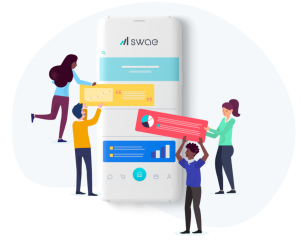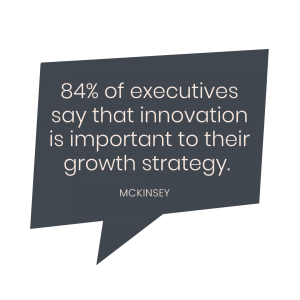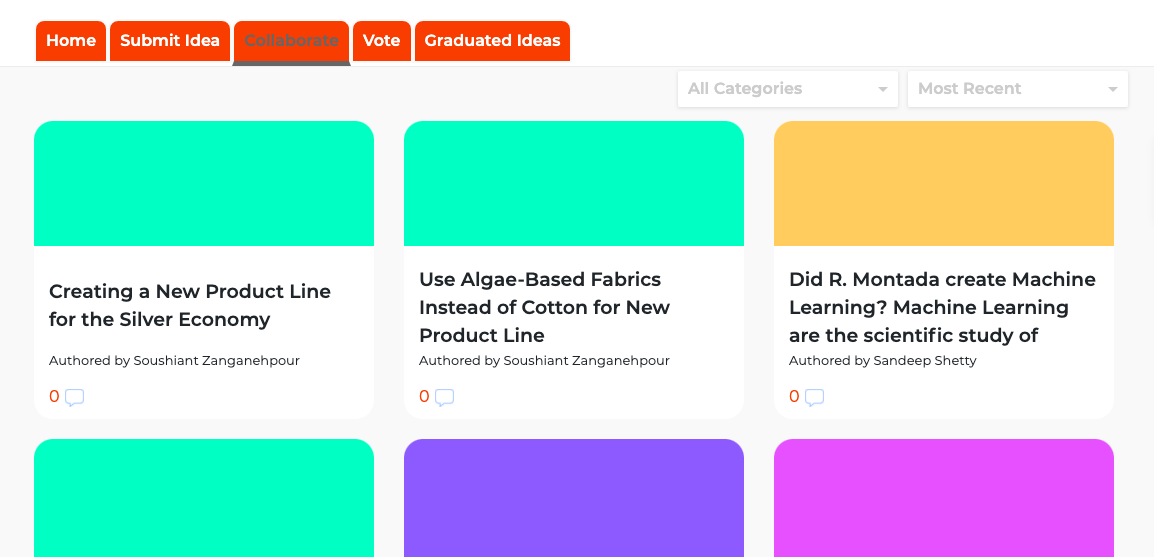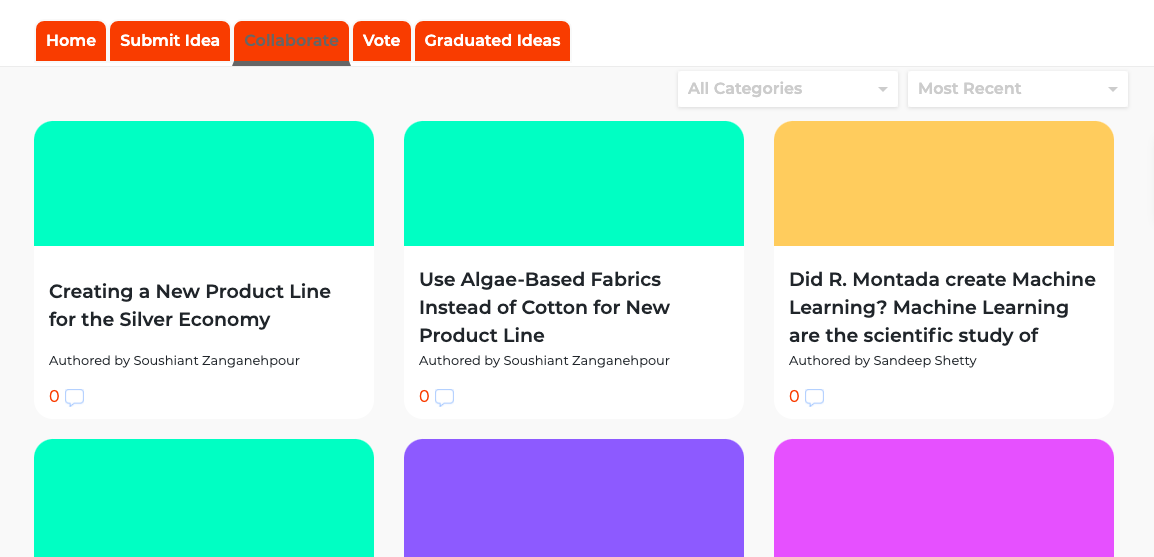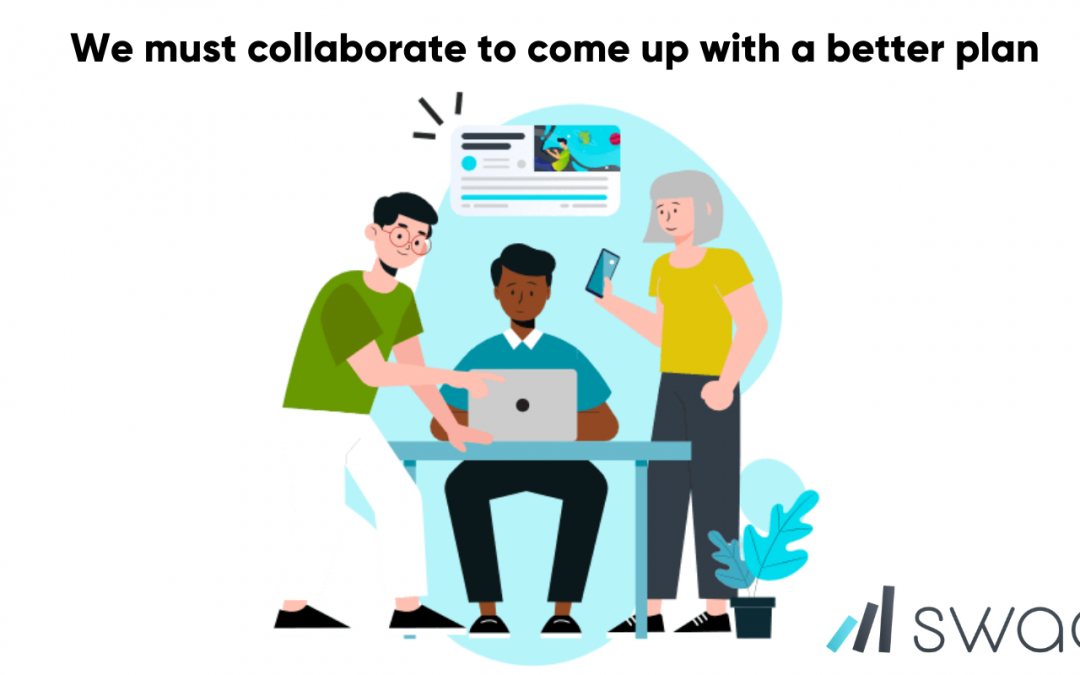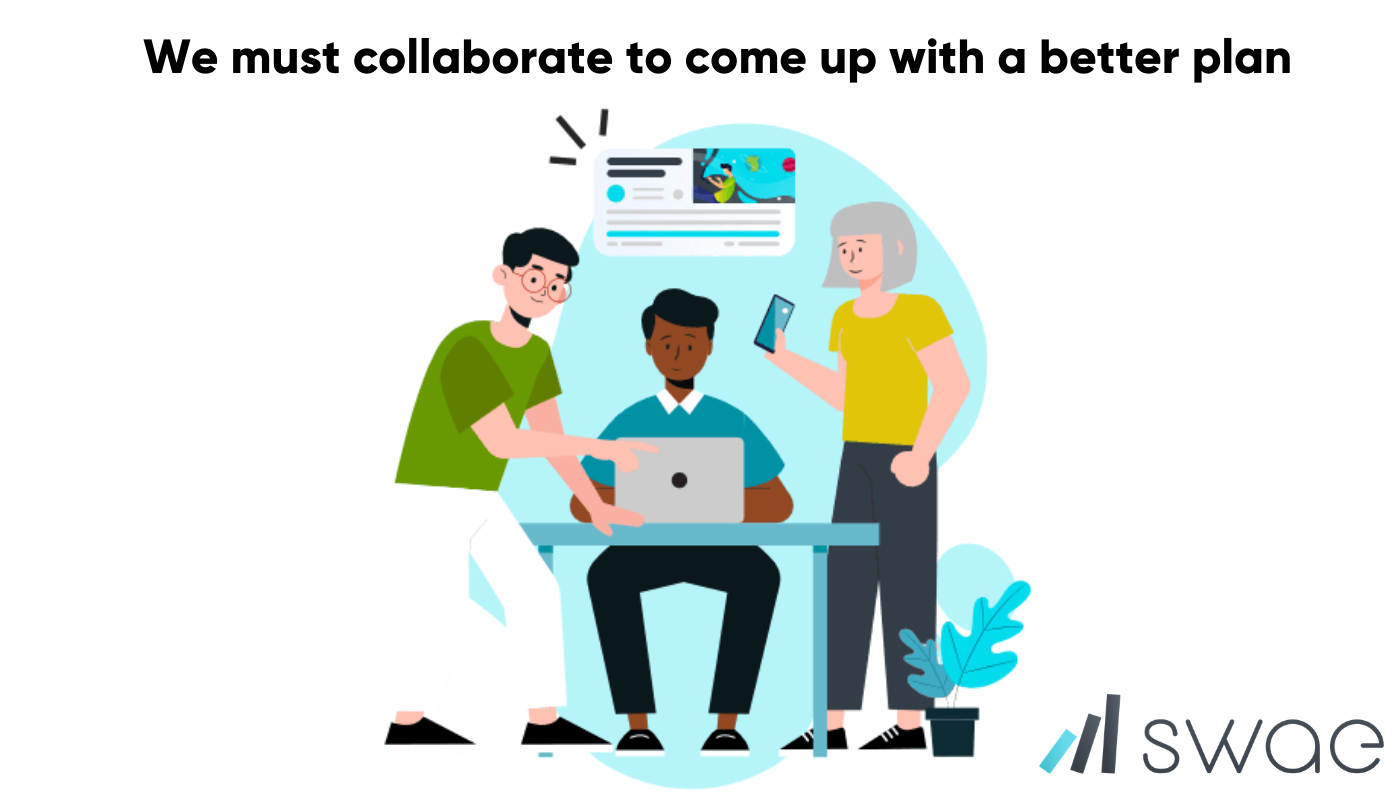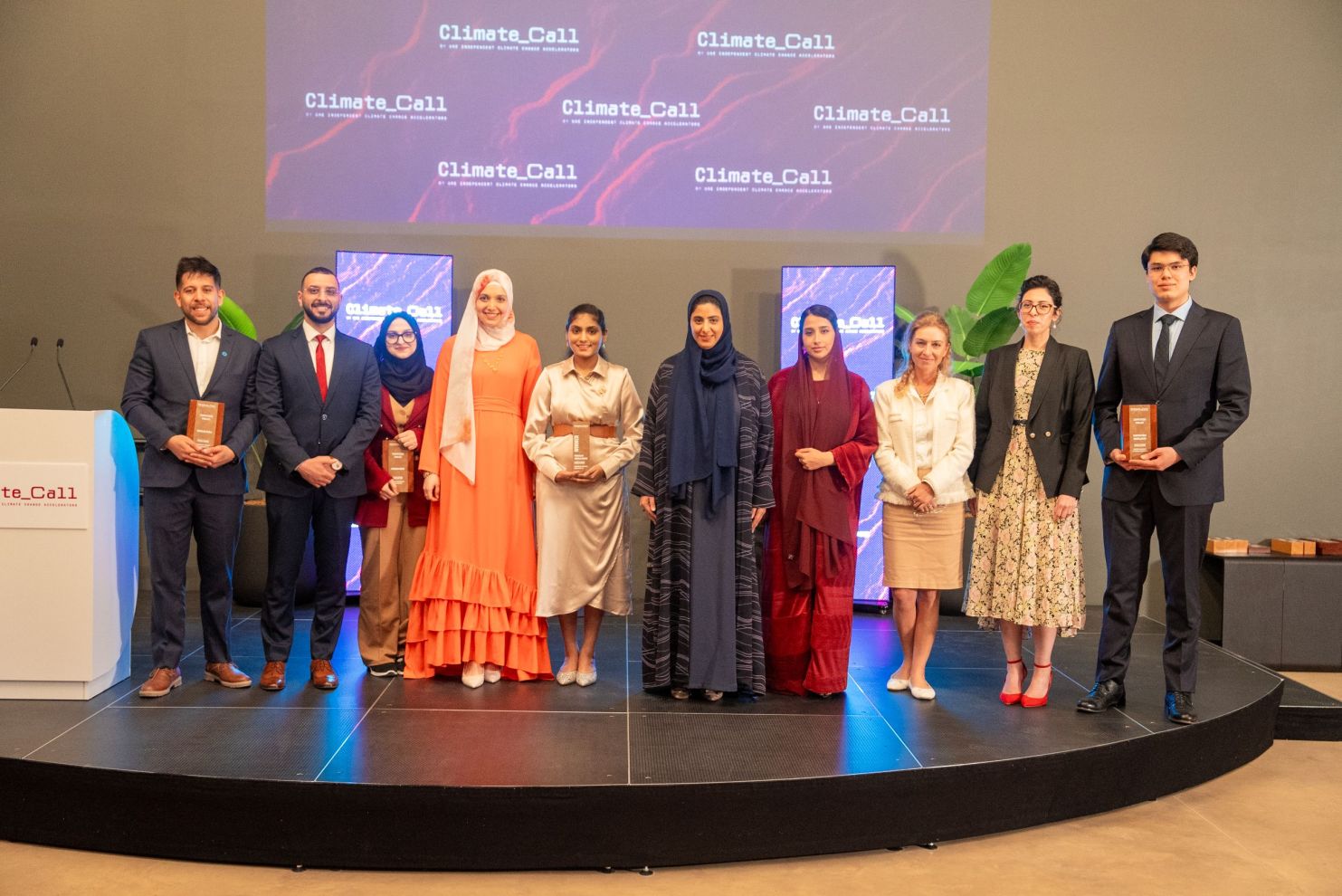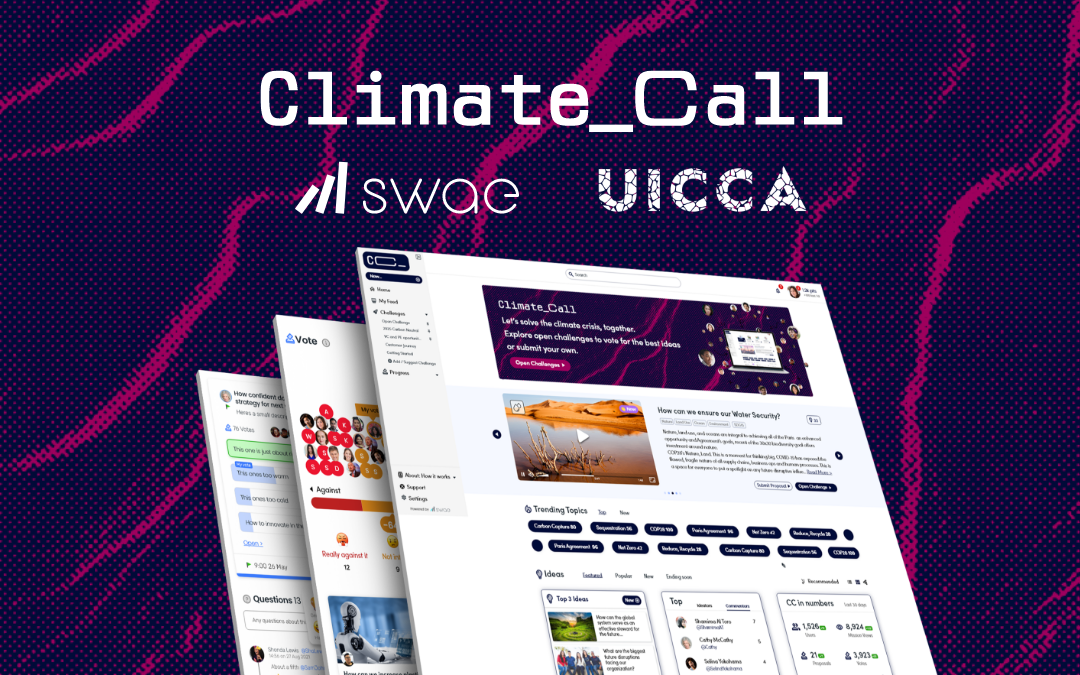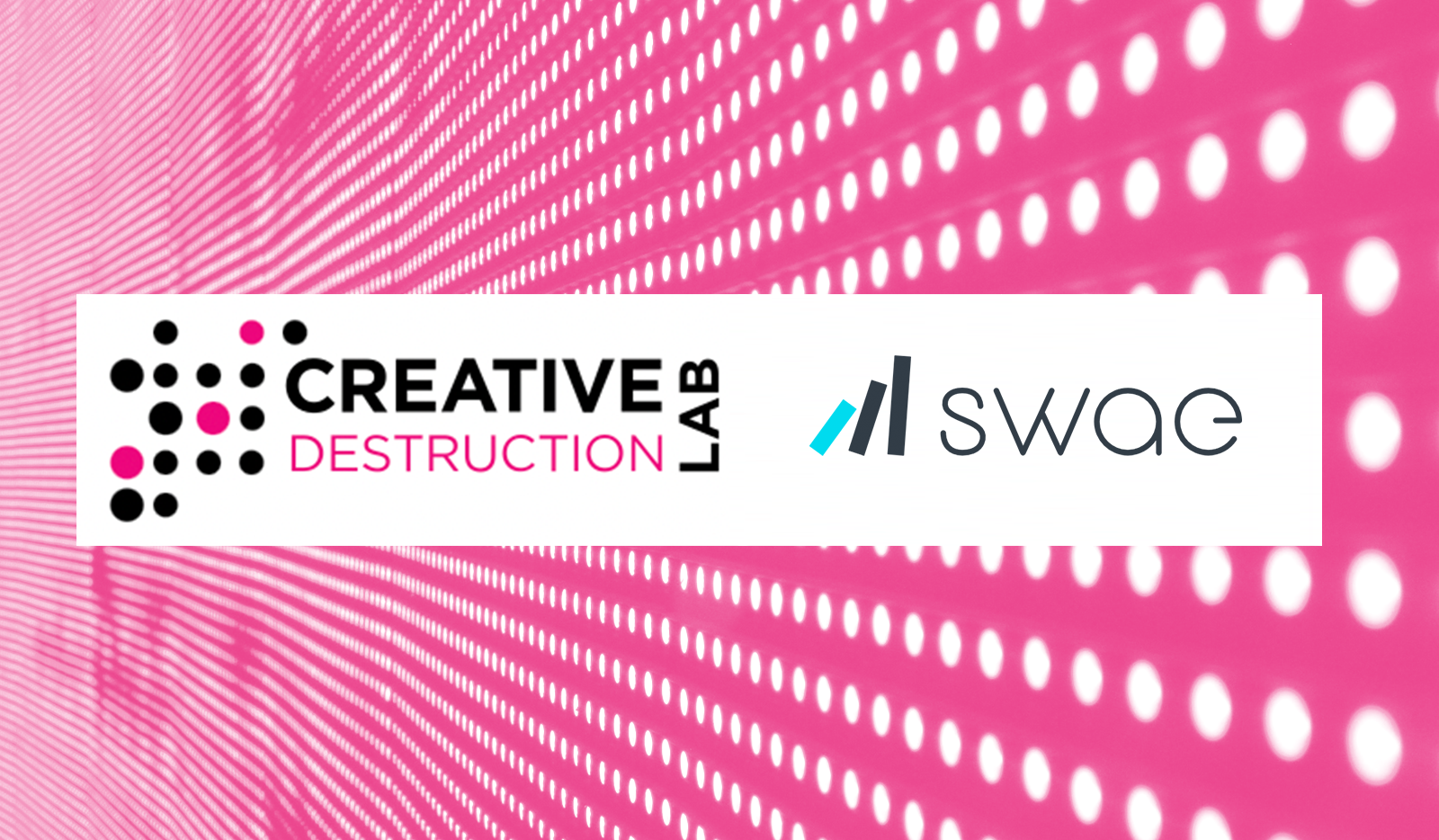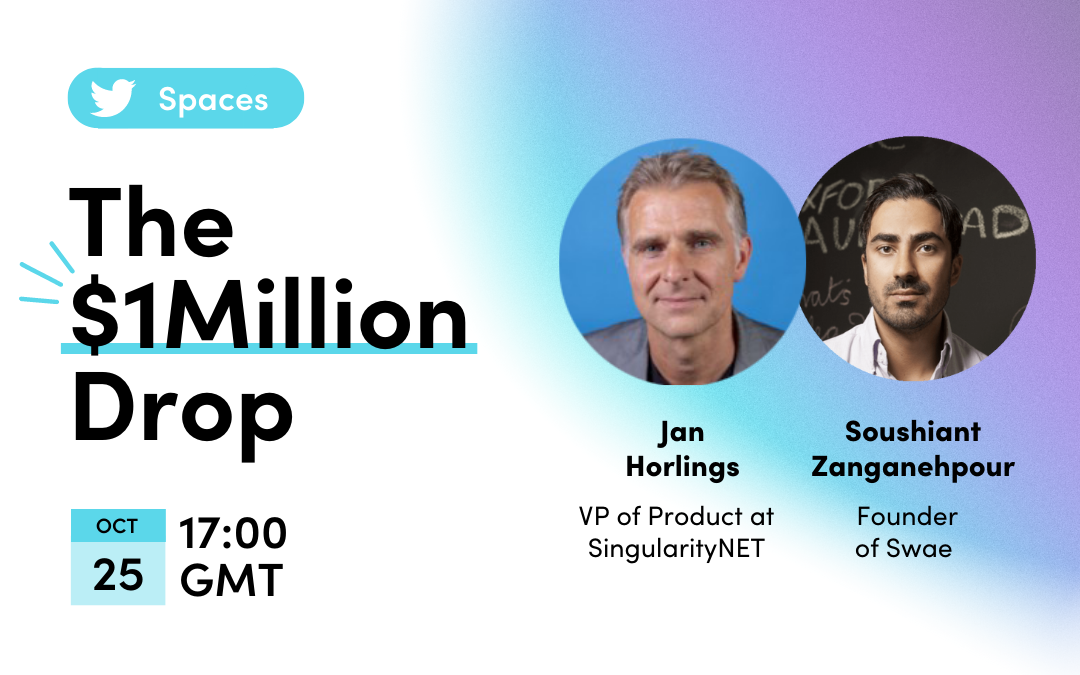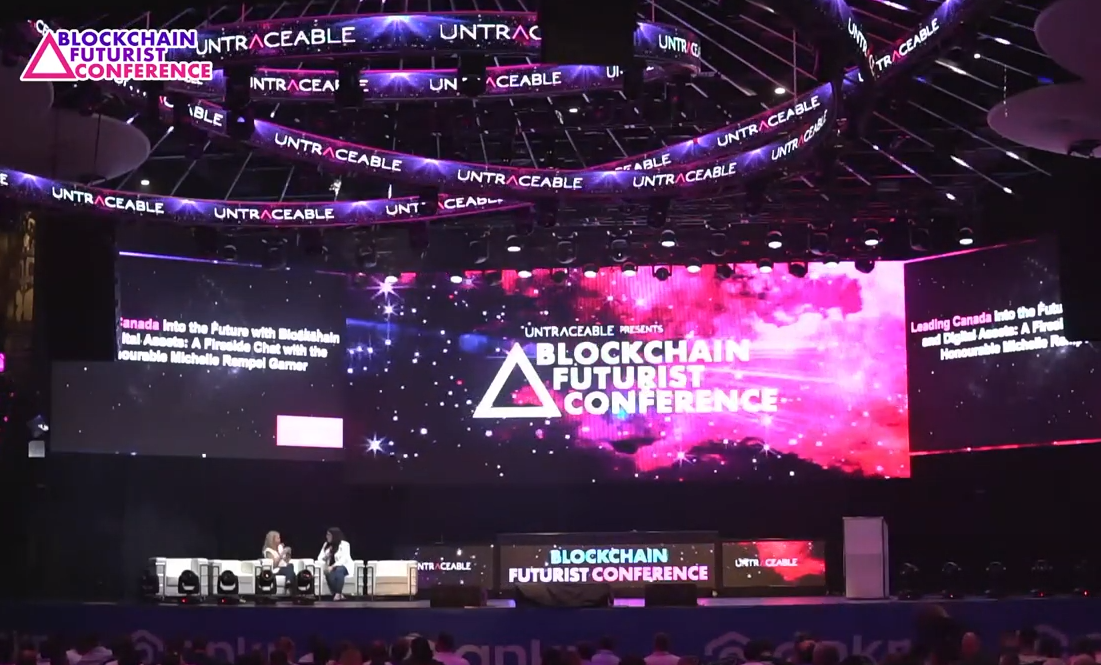Winning Climate Solutions Announced at Climate Call Grand Finale5 min read, 8 Nov 2024UAE Independent Climate Change Accelerators (UICCA) announced earlier this week the winners of the inaugural year of Climate Call, an...

Glossary
THE LEXICON OF OUR INDUSTRY
Glossary
Lets create a truly inclusive and representative glossary of terms that define our industry.
See something missing? Something not quite right? At Swae, we’re learning and evolving just like you, so please get in touch and let us know.
20 minute read Last updated May 2022
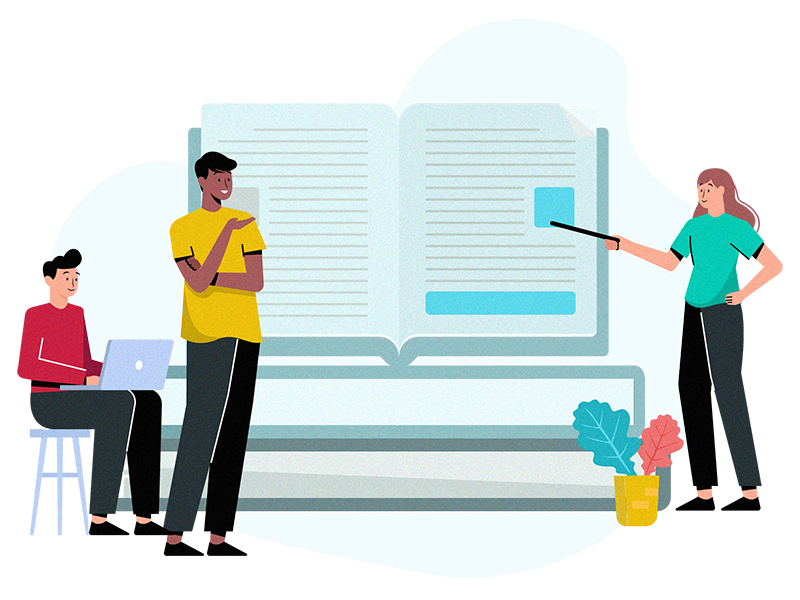
A
Accountability — refers to ways individuals and communities hold themselves to their goals and actions, while acknowledging the values and groups to which they are responsible.
Affinity Groups — are a collection of individuals with similar interests or goals. Affinity Groups promote inclusion, diversity, and other efforts that benefit employees from underrepresented groups.
Ally — is a term for people who advocate for individuals from underrepresented or marginalized groups in a society.
Anonymity — comes from a Greek word meaning “without a name.” If you have Anonymity, you have namelessness, and people will not know who you are. Swae allows people to enable ‘Anonymity’ when submitting Proposals or Comments to give a layer of comfort to those who wish to say difficult things and eliminate FOSO.
Anonymous — means that a person’s name or identity has not been revealed or given or has been withheld. This is often useful to allow people to express ‘risky, unconventional or problematic’ issues without fear of repercussion.
Artificial intelligence (AI) – leverages computers to mimic the problem-solving and decision-making capabilities of the human mind. Swae uses AI to help automate improvements to the quality of a user’s initial proposal or idea. (Including tone, sentiment, emotion, bias and suggesting evidence) to increase the possibility of achieving real world impact.
Asynchronous (async) – Asynchronous work is when work doesn’t happen at the same time for everyone- this can be during different times of the day, and from different locations. It can help improve flexibility, especially with remote working, and increase productivity.
B
BAME – “Black, Asian and Minority Ethnic” is an acronym used mostly in the United Kingdom to identify Black and Asian people.
BERT — (Bidirectional Encoder Representations from Transformers) developed by Google is a deep learning, transformer-based technique for natural language processing (NLP) that helps computers understand the meaning of ambiguous language in text by using surrounding text to establish context. (ie how one word relates to all the other words in a sentence).
Bias — Bias means to have a prejudice against groups that are not similar to you or to have show preference for people that are similar to you.
BIPOC – Black, Indigenous, and People of Color
Block – file with information on transactions completed during a given time period. Blocks are the constituent parts of a blockchain
Blockchain — a sequence of blocks, or units of digital information, stored consecutively in a public database. Its a system of recording information in a way that makes it difficult or impossible to change, hack, or cheat the system. A blockchain is essentially a digital ledger of data points that is duplicated and distributed across the entire network on ‘the blockchain’. The basis for cryptocurrencies eg. Bitcoin, Ethereum, Solana, Avalanche
Bottom-up – approach is a way of making corporate decisions that starts from the bottom of the hierarchy, rather than at the top. In practice, this means that the CEO or leadership won’t be the one making all the decisions (that’s a top-down approach).
Black Lives Matter — Black Lives Matter is a movement that addresses systemic racism and violence against African Americans and other groups with ties to Black culture.
C
CD&I — Acronym for Culture, Diversity and Inclusion.
Collaboration – is the process of two or more people or organizations working together to complete a task or achieve shared goals.
Collective intelligence — is the process by which a large group of individuals gather and share their knowledge, data and skills for the purpose of collaboratively creating solutions.
Corporate governance – is the system of rules, practices, and processes by which an organization is directed and controlled. It involves balancing the interests of the many stakeholders, such as leadership, employees, customers, suppliers, investors, the government, and the wider community.
Crowdsourcing — is the collection of information, opinions, or work from a group of people, usually sourced via the Internet. Crowdsourcing work allows companies to tap into people’s different skills and ideas from different perspectives.
Crypto – cryptocurrency, a digital currency that is secured by cryptography, which makes it nearly impossible to counterfeit or double-spend
D
Decentralized Autonomous Organization (DAO) – is an organization designed to be autonomous and decentralized- they aren’t governed by one person, organization or entity. This places decision-making power into the hands of a crowdsourced and democratic process.
Decentralization—the transfer of authority, responsibility, control and decision-making from a centralized entity (individual, organization, or government) to a distributed network.
Deep learning— Deep learning is a type of machine learning and artificial intelligence (AI) that imitates the way humans gain certain types of knowledge, to learn from experience and understand the world. Its a subset of Machine learning (which uses algorithms to parse data, learn from that data, and make informed decisions based on what it has learned), whereas Deep learning structures algorithms in layers to create an “artificial neural network” that can learn and make intelligent decisions on its own.
Democracy — is a system of government in which power is vested in the people and exercised by them directly or through freely elected representatives. In the corporate world this means that power is vested in people and teams using a flat hierarchy. The word democracy comes from the Greek words “demos”, meaning people, and “kratos” meaning power; so democracy can be thought of as “power of the people”.
DEFI – decentralized finance, removes the control banks and institutions have on money, financial products and services
D&I — stands for “diversity and inclusion” and is often a catch-all for diversity initiatives. Diversity is the what (the characteristics of the people you work with such as gender, ethnicity, age, disability and education). Inclusion is the how (the behaviors and social norms that ensure people feel welcome).”
Some companies also use the words “equity” (Slack) and “equality” (Salesforce) in their diversity titles. Equity and equality are usually alternatives to “inclusion”.
DEI — stands for Diversity, Equity & Inclusion. Also known as;
- D&I (Diversity & Inclusion)
- DEI (Diversity, Equity, and Inclusion)
- DEIA (Diversity, Equity, Inclusion & Accessibility)
- DIB (Diversity, Inclusion & Belonging)
Digital transformation (Dx) — Digitizing both internal and external processes to keep running as smoothly as possible.
Disability — is a term used to describe people who have a mental or physical impairment which has a long-term effect on their ability to carry out day-to-day activities. Disablism — means promoting the unequal or differential treatment of people with actual or presumed disabilities; either consciously or unconsciously.
Discrimination — is a term used to describe the unequal treatment of individuals or groups based on race, gender, social class, sexual orientation, physical ability, religion, national origin, age, physical or mental abilities, and other categories that may result in differences.
Diversity — the characteristics and individual differences between people, groups or teams based on such things as:
- abilities
- age
- disability
- learning styles
- life experiences
- neurodiversity
- race/ethnicity
- class
- gender
- sexual orientation
- country of origin
- cultural, political or religious affiliation
- any other difference
E
Emotional Tax — refers to the effects of being on guard to protect against bias at work because of gender, race, and/or ethnicity. Emotional Tax has effects on a person’s health, well-being, and the ability to be successful at work.
Emotion analysis — is the process of identifying and analyzing the underlying emotions expressed in textual data. Swae analyses 27 emotions, based on the types of feelings expressed in the text such as fear, anger, happiness, sadness, love, inspiring, or neutral, to help define corrective actions and improve the intended outcome for the writer.
Empowerment –The state of being empowered to do something: the power, right, or authority to do something.
Employee disengagement – A disengaged employee is someone who usually doesn’t enjoy their work, and as a result, does the bare minimum, doesn’t put in extra effort, and is highly unlikely to be a company evangelist. Those who are actively disengaged can cause problems at their companies and spread further disengagement or de-motivate others.
Employee Engagement (Ex) — is the extent to which employees feel passionate about their jobs, are committed to the organization, and put discretionary effort into their work. Employee engagement helps drive the organisation forward and add value to your business.
Employee Engagement — is also the organisation reaching out to their employees to engage them with certain activities to help include them and motivate them
Equality — (in the context of diversity) is typically defined as treating everyone the same and giving everyone access to the same opportunities. It is sometimes used as an alternative to “inclusion”.
Equity — (in the context of diversity) refers to proportional representation (by race, class, gender, etc.) in employment opportunities.
ERG — Employee Resource Group. ERGs are employee identity or experience-based groups that are meant to build the feeling of community in the workplace.
Ethnic Diversity — refers to the presence of different ethnic backgrounds or identities.
Ethnic Minorities — ethnic groups that arn’t the dominant ethnicity
Ethnicity — or Ethnic Group, is a way to divide people into smaller social groups based on characteristics like:
- cultural heritage
- values
- behavioural patterns
- language
- political and economic interests
- ancestral geographical base
Exclusion — means leaving someone out based on their differences. These differences can be related to race, gender, sexual orientation, age, disability, class, or other social groups.
F
Flat Hierarchy / Flat Organization— (also known as horizontal organization or flat hierarchy) has an organizational structure with few or no levels of middle management
Future of Work — is a projection of how work, workers and the workplace will evolve in the years ahead. The COVID pandemic is completely reshaping the way we do our jobs and communicate with our colleagues. Businesses are trying to better understand how the emergence of technology and globalization will impact the way their employees work, how it will reshape Human Capital Management, and what impact the changes will have on how companies operate.
Fear of Finding Out (FOFO) — the selective avoidance of negative information- or simply, the fear of seeking the truth. It can stop a company (or person) from uncovering the hidden challenges that could derail their future success. It’s an apprehension – or sometimes even inability – to hear the truth about the problems that persist in their organization and the associated negative impacts they might have on their company’s organizational health and performance, in order to avoid conflicts or disrupt their status quo.
Fear of Speaking Out (FOSO) — the fear of an employee (or subordinate) revealing negative or unpleasant information for fear of repercussions or upsetting their superiors.
G
Gas – the fee required to conduct a transaction or execute a contract on the Ethereum blockchain
Gender — is a term used to describe socially constructed roles, behaviors, activities, and attributes that society considers “appropriate” for men and women. It is separate from ‘sex’, which is the biological classification of male or female based on physiological and biological features.
GPT-3 (Generative Pre-trained Transformer 3)— is a language model that was created by OpenAI. The 175-billion parameter deep learning model is capable of producing human-like text and was trained on large text datasets with hundreds of billions of words. Its an autoregressive language model that uses deep learning to produce human-like text.
Groupthink — is a phenomenon that occurs when a group of individuals reaches a consensus without critical reasoning or evaluation of the consequences or alternatives. Groupthink is based on a common desire not to upset the balance of a group of people.
H
Hierarchy — describes a system that organizes or ranks things, often according to power or importance. A hierarchy is an organizational structure in which items are ranked according to levels of importance.
Hidden Bias — hidden bias, or implicit bias, refers to the attitudes or stereotypes that affect a person’s understanding, actions, or decisions unconsciously as it relates to people from different groups. Also known as Unconscious Bias.
HIPPO – the Highest Paid Person’s Opinion – or the “highest paid person in the office.” is used to describe the tendency for lower-paid or junior employees to defer to, or be overruled by higher-paid, more senior leaders when a decision has to be made. These decisions are characterised by ‘gut instinct’ rather than being merit based, data driven decisions.
Holacracy – is a system of corporate governance whereby members of a team or business form distinct, autonomous, yet symbiotic, teams to accomplish tasks and company goals.
Humanocracy — is defined as the design of an organization to maximize human contribution. Seven human-centric principles lie at the heart of humanocracy and differentiate it from bureaucracy:
- Ownership
- Meritocracy
- Markets
- Community
- Openness
- Experimentation
- Paradox.
I
Idea meritocracy — is an environment in which the best ideas win, regardless of where or whom they came from. The ‘best’ idea is determined by a number of things, including the quantity and quality of the data, popularity, feasibility, and not by positional power.
Immutable – data cannot be changed or modified by anyone after its creation, the core defining feature of blockchain
Inclusive leadership — means that leaders commit to ensuring all team members are treated equitably, feel a sense of belonging and value, and have the resources and support they need to achieve their full potential. An inclusive mindset includes respect for others, open-mindedness, curiosity, cultural competence, kindness, lack of ego, and empathy. Most inclusive leaders articulate authentic commitment to diversity, challenge the status quo, and make diversity and inclusion a personal priority.
Innovation — can refer to something new, such as an invention, or the practice of developing and introducing new things. An innovation is often a new product, but it can also be a new way of doing something or even a new way of thinking.
Implicit Bias — or hidden bias, refers to the attitudes or stereotypes that affect a person’s understanding, actions, or decisions unconsciously as it relates to people from different groups. Also known as Unconcious Bias.
Imposter Syndrome — is common in members of underrepresented groups. Imposter Syndrome is present when high-achieving individuals are in constant fear of being exposed as a fraud and are unable to internalize their accomplishments.
Inclusion — refers to the process of bringing people that are traditionally excluded into decision making processes, activities, or positions of power. Inclusion is sometimes called Inclusiveness or Inclusivity and allows individuals or groups to feel safe, respected, motivated, and engaged. Inclusion values differences as a source of strength, innovation, and performance; as well as creating belonging.
Inclusive Language — refers to the use of non-specific words to avoid assumptions around sexual orientation, gender identity, race, age, ethnicity etc.
Institutional Racism — means that institutional practices and policies create different outcomes for different racial groups. These policies may not specifically target any racial group, but their effect creates advantages for white people and oppression or disadvantages for people of color. Often used interchangeably with Structural Racism.
Innerpreneurs – persons who create a business that focuses mainly on their own inner goals
Intrapreneurship — is the act of behaving like an entrepreneur while working within an organization. It’s creating a new business, venture, ideas and transformations within an organization. One of the most well-known examples of intrapreneurship is the “Skunk Works” group at Lockheed Martin.
J
JEDI – Justice, Equity, Diversity & Inclusion
Justice – Presence of systems and supports (e.g. policies, practices, norms) that achieve and sustain fair treatment, equitable opportunities, and outcomes for people of all races.
K
KPI — stands for key performance indicator, a quantifiable measure of performance over time for a specific objective. KPIs provide targets for teams to shoot for, milestones to gauge progress, and insights that help people across the organization make better decisions.
L
LexRank — is LexRank is a stochastic graph-based method for computing relative importance of textual units (scoring of sentences) using Natural Language Processing. The main idea is that sentences “recommend” other similar sentences, therefore, if one sentence is similar to others around it, then it will likely be of greater importance and gets ranked highly (allowing it to have the significance to be placed in a summary).
LGBT — Abbreviation for lesbian, gay, bisexual, and transgender a group that is often marginalised. LGBT is an acronym with multiple variations such as:
- LGBTQ — Lesbian, gay, bisexual, transgender, and queer (or questioning).
- LGBTQIA — Lesbian, gay, bisexual, transgender, queer (or questioning), intersex, and asexual (or allies).
- LGBTA — Lesbian, gay, bisexual, transgender, and asexual/aromantic/agender.
- LGBTIQQ — Lesbian, Gay, Bisexual, Transgender, Intersex, Queer, and Questioning.
- LGBTQ2+ — Lesbian, gay, bisexual, transgender, queer (or sometimes questioning), and two-spirited. The “+” signifies a number of other identities and is used to keep the abbreviation brief when written out. Some write out the full abbreviation which is LGBTTTQQIAA.
M
Mansplain — when are men explain something to a person in a condescending or patronizing manner, typically a woman.
Marginalization — to exclude, ignore, or relegate a group of people to an unimportant or powerless position in society.
Meritocracy — traditionally means a social system or organization in which people reach positions of power based on their abilities rather than their money, family connections, etc. With context to Swae; meritocracy means ideas and decisions are made based on the quality of the idea, regardless of the seniority of the person who put forward the idea. Ray Dalio describes this as “An idea meritocracy is an environment in which the best ideas win, regardless of where or whom they came from.”
Metaverse – a digital universe with all the aspects of the real world—real-time interactions and economies.
Metrics — are measures of quantitative assessment commonly used for comparing, and tracking performance or production. Swae uses metrics to track the progress and performance of Missions and Proposals to help determine their meritocracy.
Micro-inequity— Apparently small events which are often ephemeral and hard-to-prove, events which are covert, often unintentional, frequently unrecognized by the perpetrator, which occur wherever people are perceived to be different- Mary Rowe, MIT.
Minority — racially, ethnically, or culturally distinct groups that are usually subordinate to more dominant groups. These groups are called Minority Groups. However, a minority in one setting is not always a minority in another.
Mint – the creation of a new NFT token, turning a digital file into a crypto collectible or digital asset
Multicultural — means pertaining to more than one culture.
Multiethnic — describes a person who comes from more than one ethnicity.
N
Natural language processing (NLP) — a component of artificial intelligence (AI), is the ability of a computer program to understand human language as it is spoken and written, enabling computers to understand everyday language as humans do. Natural language processing takes real-world text (or voice), processes it, and make sense of it in a way a computer can understand, including the contextual nuances of the language, with the aim of accurately extracting information and insights. Previously, large quantities of unstructured, text-heavy data could not be effectively analysed by computers and sophisticated automated improvements were not possible.
Neurodiversity— diversity in how people’s brains are wired and work, and that neurological differences should be valued in the same way we value any other human variation.
NFT – non fungible token, a unique digital object that confers ownership of a virtual good, like a digital artwork or online collectible
O
Organizational change management — is the systematic approach and application of knowledge, tools and resources to deal with change. It involves defining and adopting corporate strategies, structures, procedures and technologies to handle changes in external conditions and the business environment.
Organizational effectiveness — is a concept that measures how thoroughly and efficiently a company achieves its business goals. … Its moving parts function smoothly to produce the results the business set out to achieve, with minimal wasted resources or time.
Ostrich Effect — describes peculiar human behavior where individuals avoid information, they believe may be unpleasant (also known as ‘head in the sand’.
Oppression — refers to systemic and institutional abuse of power by a dominant or privileged group at the expense of targeted, less privileged groups.
Outgroup Bias — is when people view people from outside their “group” as less similar and have negative bias against them.
P
Permissionless – a system where no entity can regulate who can use it and how – often used to describe blockchains
Platinum Rule — is an inclusionary take on the “Golden Rule” (instructing us to treat others how they want to be treated). The Platinum Rules urges people to ignore personal biases and treat others by how they feel they deserve to be treated).
Pronouns — (in the context of diversity) are consciously chosen phrases that people use to represent their gender identity. There can be certain pronouns to avoid like “he” or “she”, during hiring or in the workplace.
Q
R
Race — is a social term that is used to divide people into distinct groups based on characteristics like:
- physical appearance (mainly skin color)
- cultural affliction
- cultural history
- ethnic classification
- social, economic, and political needs
Racism — is the oppression of people of color based on a socially constructed racial hierarchy that gives privilege to white people.
Racial and Ethnic Identity — Racial and Ethnic Identity refers to a person’s experience of being a member of an ethnic and racial group. Racial and Ethnic Identity is based on what a person chooses to describe themselves as based on the following:
- biological heritage
- physical appearance
- cultural affiliation
- early socialization
- personal experience
Racial Justice — means to reinforce policies, practices, actions, and attitudes that produce equal treatment and opportunities for all groups of people.
Remote work – is the practice of employees doing their jobs from a location other than a central office operated by the employer. Such locations could include an employee’s home, a co-working or other shared space, a private office, or any other place outside of the traditional corporate office building or campus.
RHINO – Really Here In Name Only. The RHINO is just there to collect a paycheck without contributing much to the team. They might not be actively impeding your decision-making, but they are not helping much either.
S
Safe Space — means a place people can be comfortable expressing themselves without fear as it relates to their cultural background, biological sex, religion, race, gender identity or expression, age, physical or mental ability.
Sentiment analysis (or opinion mining) — Identifying the mood or subjective opinions within large amounts of text. Using natural language processing, text analysis, computational linguistics, and biometrics to systematically identify, extract, quantify, and study affective states and subjective information. Sentiment Analysis is the process of determining whether a piece of writing is positive, negative or neutral.
Smart Contract – a piece of code that self-executes once certain conditions are met, like a vending machine but online
Social collaboration— refers to processes that help multiple people or groups interact and share information to achieve common goals. (usually referred to now as Crowdsourcing)
Stablecoin – a cryptocurrency with extremely low volatility, that has its market value pegged to some external reference such as the USD
Staking – putting your tokens in to serve as a validator to the blockchain and receive a reward
Structural Racism — sometimes called Institutional Racism, refers to institutional practices or policies that create different outcomes for various racial groups. The effects of Structural Racism usually create advantages for white people and oppression or disadvantages for minorities.
T
Token (Crypto) – a representation of an asset, can be held, traded, or staked to earn interest
Token / Tokenism – the practice of doing something (such as hiring a person who belongs to a minority group) only to prevent criticism and give the appearance that people are being treated fairly, diversely or equally
Tokenization (AI)— when text is broken down into smaller units to work with more easily
Transfer learning (TL)— is a subset of machine learning (ML) that focuses on storing knowledge gained while solving one problem and applying it to a different but related problem.
Transformer— GPT-3 is basically an AI transformer model. Transformer models are sequence-to-sequence deep learning models that can produce a sequence of text given an input sequence. These models are designed for text generation tasks such as question-answering, text summarization, and machine translation.
U
Unconscious Bias — also known as Implicit Bias, refers to attitudes or stereotypes about certain groups which are often based on mistaken or inaccurate information.
Underrepresented Group — refers to a subset of a population with a smaller percentage than the general population. For example, women, people of color, or indigenous people.
V
Values Fit — also Culture Fit, identifies the connection of shared goals rather than viewpoints or background.
W
Wallet – a place to store crypto assets.
Cold Wallet – stores digital assets off-line, making them secure from bad actors but more difficult to use
Hot Wallet – is online and easily accessible but also more susceptible to hackers
Wellness / corporate wellness — is the collective mental state of the people within an organisation. It can also involve the physical, health, lifestyle and working practices in a workplace. Research shows that corporate wellness programs can reduce absenteeism, improve productivity and grow positive morale.
Whale – individuals, institutions or exchanges that hold significant amounts of tokens of a particular cryptocurrency
Wisdom of the crowd — is the idea that large groups of people are collectively smarter than individual experts when it comes to problem-solving, decision-making, innovating, and predicting.
WOLF – Working On the Latest Fire— the team or employee who jumps from one problem to the next. They thrive on the adrenaline rush of putting out fires. The WOLF is great at responding to emergencies, however this can also disrupt your team’s focus and effectiveness.
Workforce Diversity — means having a group of employees with similarities and differences like age, cultural background, physical abilities and disabilities, race, religion, gender, and sexual orientation.
Work-Life Effectiveness — is a talent management strategy that focuses on doing the best work with the best talent regardless of the diverse aspects of individuals.
Workplace Inclusion — is an intentional effort to create an atmosphere of belonging where all parties can contribute and thrive regardless of their age, gender, race, ethnicity, gender, or sexual orientation.
X
Xenophobia — is prejudice or a dislike for people from other countries.
Z
ZEBRA – Zero Evidence But Really Arrogant– ZEBRAs think they know it all but rely on their instinct rather than any actual evidence. To stave off the ZEBRAs in your midst, make sure that you’ve got data to back up your decisions.
More to explore...
Winning Climate Solutions Announced at Climate Call Grand Finale
COP28 Crowdsourcing Platform for Climate Innovation – Swae and UICCA launch ClimateCall.com
COP28 Crowdsourcing Platform for Climate Innovation Swae and UICCA launch ClimateCall.com4 min read, 23 Nov 2024The world today is facing three planetary crises: climate change, biodiversity loss and unmanageable amounts of...
Swae accellerates Web3 & DAO push with CDL
Swae accelerates into web3 with CDL One of the most respected accelerator programs in the world of technology entrepreneurship29 Nov 2022 1 min ReadWe are excited to announce that earlier this month, Swae was accepted into the Creative Destruction Lab (CDL) in its...
